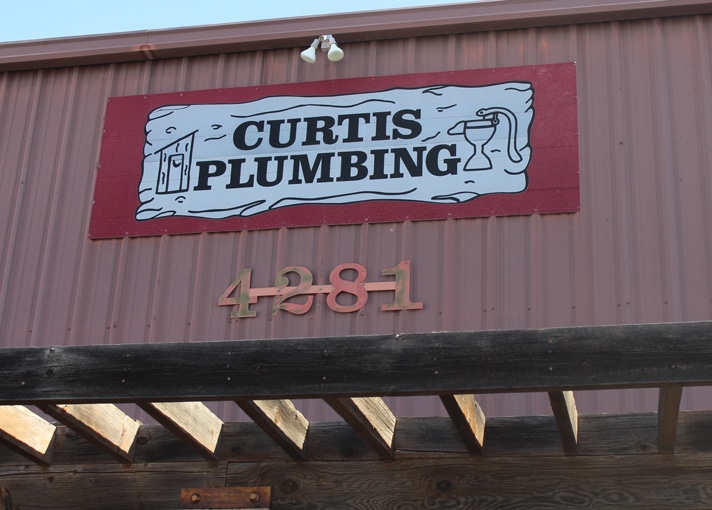Septic Certification for Home Sales
The Arizona real estate market is currently one of the best-performing in the country. Your Arizona home might find a buyer soon after listing it for sale. However, if your home has an on-site wastewater treatment or septic system, you need to schedule an ADEQ septic inspection as soon as you put it up for sale.
With Arizona law requiring a septic system inspection when selling a home or property with a septic system, it is essential to have it done to avoid a delayed sale. An ADEQ-licensed transfer of ownership inspector must do all inspections. The septic inspector can be licensed across several states.
A septic inspection certification for a home sale expires after six months, after which you have to have a re-inspection if the property is still on the market. However, with the current Arizona real estate market, it is unlikely that you will not have sold your home six months after listing it for sale.
What is a Septic System?
It is critical to understand what a septic system is and how it functions to understand better why certification during a transfer of ownership is necessary. A septic system is an on-site wastewater collection, treatment, and disposal system. It separates the wastewater into solid waste or sludge, floatable material or scum, and liquid waste or effluent.
The system naturally settles the solid waste at the bottom of the septic tank, the scum at the top, and the effluent at the middle, discharging it to a drain field through some pipes. The system filters and redistributes the watery mix into the ground. Bacteria and other microorganisms consume and dissolve a portion of the scum and sludge in the tank.
Any undissolved scum or sludge needs to be pumped out. Plumbing experts recommend a septic tank pumping or cleaning every three to five years. However, you should schedule a tank pumping as soon as you suspect your tank is full. An inspection can help identify if your tank needs pumping.
What is a Septic Inspection?
Septic certification for a home sale cannot happen without a septic inspection. A septic inspection examines if a septic system is working as it should. It helps detect any septic issues before they damage the plumbing system or become a health hazard for you and your family. A septic inspection is either visual or full.
A visual inspection involves checking how old the house or the septic system is, how often the owner pumps or cleans the system, and the date of the last inspection. As part of the visual inspection, the inspector runs faucets and flush toilets in the house to ensure the system is functioning properly. Visual inspection may also involve checking for signs of standing water in the drain field area.
While a visual inspection is helpful, it might not tell the whole story about the state of the septic system. A full inspection is often necessary, especially during a transfer of ownership. Full inspections include all the tasks in a visual inspection, including running faucets and flushing toilets to check the system’s functionality.
However, a full inspection is more comprehensive and involves several other steps, including:
- locating the septic tank and the drain field area
- digging and removing the septic tank covers
- checking the water level in the septic tank, including running faucets in the house
- inspecting the tank’s inlet, outlet, and partition wall
- locating the pump, float, and cleaning of the filter, if necessary
- examining the sludge and scum levels
- septic tank pumping, and checking for any backflows from the drain field area
While you can schedule a septic inspection every three to five years as you clean your septic system, experts recommend an inspection once every year. An inspection ensures a septic system works properly and helps avoid unnecessary septic emergencies.
Septic Inspection for Certification
Besides the periodic inspection as a homeowner, the law requires a septic inspection when selling your home. Septic inspection for a home sale certification is similar to a regular full septic inspection. The only difference is that you have to do it as soon as you list your house for sale and the certification only lasts for six months.
What Does Inspection for Certification of a Home Sale Entails?
The inspection program when transferring a property’s ownership follows several steps, including:
- The property seller seeks the services of a qualified septic inspector to perform the required inspection six months before the property transfer date
- The inspector prepares a Report of Inspection (ROI), which becomes part of the property transfer transaction
- The seller avails the completed ROI form and any other septic system-related documents to the prospective buyer
- The buyer submits and file a completed Notice of Transfer with the relevant agencies, including ADEQ, within 15 days of the property transfer.
Why is a Septic Inspection before a Home Sale Important?
Septic inspection when selling a home is crucial both for the property seller and the buyer. First, a failed ADEQ inspection report will delay your home sale. You may need a quick home sale to cater to an emergency such as paying medical bills. However, such a sale may not be possible if your septic system has issues.
A septic inspection helps address septic issues beforehand such that they don’t jeopardize your home sales plan. Some of the issues that might lead to a failed ADEQ inspection report include the following:
- A corroded septic tank – corrosion may be due to age or poor maintenance of a septic system. When selling your home, ADEQ may require you to replace the septic tank if the corrosion is severe.
- Excessive scum and sludge buildup – if you haven’t pumped your septic tank in a long time, there may be excessive solid buildup, and you might need to pump it before getting a septic certification for your home sale.
- The presence of roots in the septic tank – if tree roots have invaded your septic tank, it is probably not watertight, and there is the likelihood of backup absorption from the drain field.
Typically, a buyer will not buy a property that needs basic maintenance work immediately after they move in, including septic system repairs. Septic certification for home sales helps protect and reassure buyers about the septic system’s functionality.
It is advisable to seek the help of a qualified septic technician to address the septic issues and ensure you get the required ADEQ certification. At Curtis Plumbing, we are reputed for our thorough inspection and follow-up pumping and maintenance work to ensure your septic system is ADEQ certified, including for a home sale.


